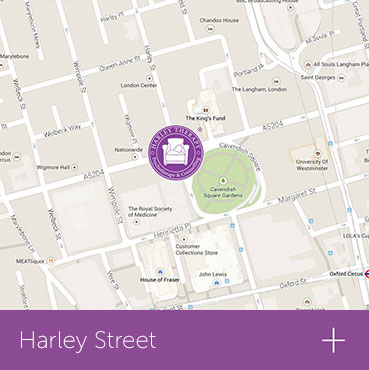Looking for a longer term, in-depth therapy? Aware that your past experiences and selves are contributing to your current day issues, and want to explore and troubleshoot this connection? Psychoanalytic psychotherapy can be a good fit.
What is psychoanalysis?
Psychoanalysis is the oldest and most established of today's modern talk therapies, tracing its roots back to Freud (although many others have contributed to psychoanalytical theory and practice since).
The main idea behind psychoanalytical psychotherapy is that the majority of our thoughts, feelings and behaviours are not within our conscious control. Instead they are dictated by our 'unconscious', where we hide all our childhood experiences, particularly if they were painful or traumatic.
The metaphor used here is often one of an iceberg, where we see the tip above the water (our conscious mind) but we are unaware of a the bulk of it, hidden below (our unconscious mind).
The role of defence mechanisms
'Defence mechanisms' are the ways we hide our memories in our unconscious in our attempts to avoid emotional pain. An example of a defence mechanism is denial, failing to acknowledge a fact in spite of clear evidence. Another is repression, where we completely block a memory of an event even though it happened.
The problem is that although such defence mechanisms can help us short-term when we are surviving a difficult childhood, in the long term we end up adults with depression, anxiety, or other emotional problems.
Psychoanalysts at Harley Therapy™
Your psychoanalytical psychotherapist creates a safe, confidential setting for you to begin to understand your past and childhood. You will gain powerful insight into your unconscious processes, and dive deeply into how this all combines to shape your current relationships and life choices.
All of our fully accredited and registered psychoanalytic practitioners are hand selected for their training at top institutions, and have many years of experience working with clients just like you. Call us to schedule an appointment, or book online now.
What does psychoanalysis look like in practice?
A session of psychoanalysis is generally 50-minutes long, and takes place weekly in a secure environment where you can feel relaxed. By listening to your innermost thoughts, feelings and experiences, your therapist will try to interpret and recognise important patterns between your past experiences and present behaviour.
Psychoanalysis is not a ‘quick fix’ but is a long-term commitment, and there is no limit on the amount of sessions you may need.
The client therapist relationship and 'transference'
Your therapist will act as a blank canvas onto which you are able to project your deepest thoughts and feelings about yourself, your loved ones, and other important individuals who could have had a significant impact upon you.
This important process is called ‘transference’. It stems from Freud’s observation that his clients developed strong feelings towards him, which were a reflection of feelings felt towards another significant person from their past, such as a parent or sibling.
Transference allows the therapist to learn more about your childhood experiences, and how important relationships from your past impact your current adult behaviour.
Dream analysis, free association, and other psychoanalytical tools
Free association is a classic tool of psychoanalysis. It involves saying the first thing that comes into your head, without censoring it. Slips of the tongue during free association, commonly known as ‘Freudian slips’, help you to identify hidden experiences and thoughts. Your therapist might also ask you to talk about your dreams, working with you to understand what meaning they might be trying to share.
Is psychoanalysis the same as psychodynamic psychotherapy?
Psychodynamic therapy developed out of and in reaction to psychoanalysis. So it shares several concepts with psychoanalysis, and also looks to your past for answers. But psychoanalysis could be seen as more in depth, and more focused on the workings of the unconscious mind.
A psychoanalyst might also prompt you less than a psychodynamic therapist, often saying very little during a session. Although your psychoanalytical therapist may not be talking at great length, they will be observing your body language and other aspects of your behaviour, which can also provide information on your inner thoughts and feelings.
View the ExpertsHow to book your appointment
Call us now on 0345 474 1724 OR book online
All practitioners are qualified and accredited with reputable professional associations.

Issues psychoanalytical therapy can help:
- anxiety & stress
- bereavement & loss
- breakups & divorce
- childhood abuse
- depression
- dependency issues
- disordered eating
- family issues
- identity issues
- life balance
- life change
- loneliness
- low self-esteem
- obsessive-compulsive disorder (OCD)
- phobias & fears
- relationship problems
- sexual problems
- trauma
- workplace stress.
Meet the Experts
Enquiry Form
To make an enquiry, please fill in this confidential form. Our dedicated administrators will review your needs and get back to you as soon as possible.
What is psychoanalytic psychotherapy?
Psychoanalytic psychotherapy is a talking therapy which brings unconscious, unpleasant or repressed memories to the conscious mind to discover how they’re affecting the patient in their everyday life.
Typically, how much does psychoanalytic therapy cost in London?
You can expect to pay around £180 per 50 minute session for psychoanalytic therapy in London. This form of therapy is often long-term, with many patients reporting good results.
Is psychoanalytic psychotherapy available on the NHS?
Psychoanalytic psychotherapy is not usually available on the NHS. Although they do sometimes offer short-term psychodynamic therapies, which use some of the theories of psychoanalysis. But note there are significant waiting lists and there may be limits on the number of sessions you’re eligible for, plus you might first be offered CBT therapy.
Does Harley Therapy offer psychoanalytic psychotherapy in London?
Yes, Harley Therapy offers psychoanalytic psychotherapy in London and we have a number of therapists offering this service, so you’ll find your best fit.





.webp)
